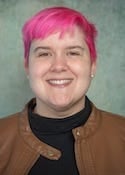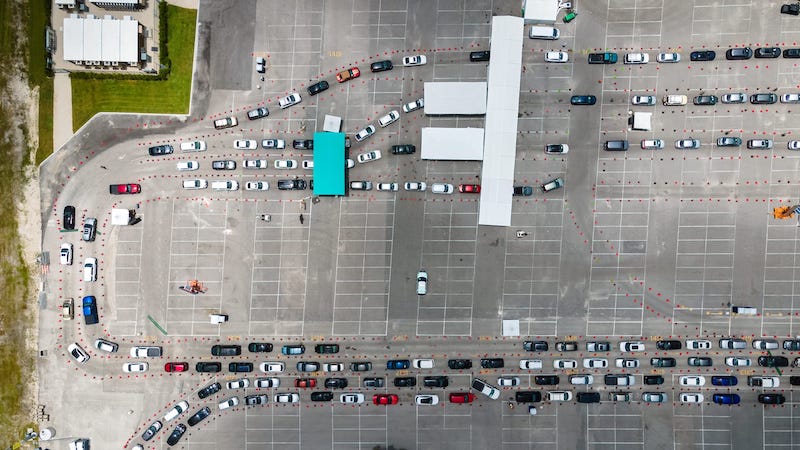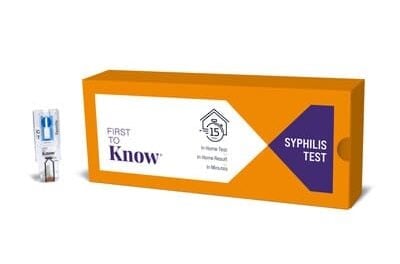The Centers for Disease Control and Prevention (CDC)’s OneLab TEST is designed for anyone who performs or coordinates diagnostic testing at non-laboratory sites.
By Chris Wolski
With the easy availability of diagnostic tests for COVID at the end of the pandemic, it’s sometimes easy to forget the early days of the health emergency when tests and testers were few and lines and wait times were long.
In the part to avoid this situation from occurring again and to help provide ongoing support to those who collect and test samples outside the lab, the CDC has launched OneLab TEST, a free, collaborative network for anyone who performs or coordinates diagnostic testing at non-laboratory sites. OneLab TEST is part of the CDC OneLab initiative.
CLP recently interviewed Kelly Winter, PhD, MPH, branch chief, Training and Workforce Development Branch, Division of Laboratory Systems for the CDC, about the larger OneLab initiative, how OneLab TEST fits under the larger umbrella, how it supports labs, and how laboratorians and others can get involved.

WINTER
The following answers have been edited for length and clarity.
CLP: How does OneLab TEST fit in with the OneLab initiative—and will there be more programs added to this?
Kelly Winter: OneLab TEST is the newest element of the initiative and the first element to focus on facilitating connections between CDC and the broader testing community. The other six OneLab elements are specifically designed for clinical and public health laboratory professionals.
OneLab was borne out of the COVID-19 pandemic to strengthen connections between separate but related laboratory and testing-affiliated entities before and during public health emergency responses. Collectively, the seven elements of the initiative facilitate an ongoing learning community that can more quickly adapt and respond to evolving laboratory training needs.

OneLab Network is a collaborative network providing free opportunities for laboratory professionals to connect with other network members, attend live events, and access customized laboratory education and training resources.
OneLab REACH (Rapid Education and Capacity-building Hub) is a targeted and customized learning management system specifically for laboratory and testing professionals. OneLab REACH offers free relevant education and training resources, continuing education units (i.e., P.A.C.E.), and downloadable materials.
OneLab Summit is a three-day annual event that connects laboratory and testing professionals in real time to support a unified response to laboratory education and training needs.
OneLab VR is an innovative program that explores the potential of virtual reality (VR) as an alternate format to train laboratory staff.
CLP: If I understand it correctly, the OneLab TEST program is designed to broaden who can provide basic diagnostic testing outside of a lab and offer resources. Is this a consequence of the pandemic, since patients became used to and comfortable with receiving testing services outside of a traditional lab or hospital setting?
Winter: We are not broadening who can provide basic testing. That has been happening for a while now in the U.S. The clinical diagnostic testing landscape has evolved dramatically over the past few years. Now, testing is regularly performed outside of the laboratory and by people from a variety of educational and work backgrounds. Those who perform waived testing at point-of-care facilities such as clinics and pharmacies typically have a healthcare background but not necessarily a laboratory background. Rapid testing at places like schools and drive-through sites often involves volunteers who might have no background in medicine or laboratory science. CDC developed OneLab TEST with this new landscape in mind.
CLP: Is OneLab TEST designed specifically just for large-scale health emergencies or is it also designed for more routine testing?
Winter: It’s both. Our goal is to support testers in performing their duties safely while adhering to quality standards, no matter the situation. We want to equip testers with the training tools and resources they need for their day-to-day work and prepare them to scale up during emergencies.
CLP: It seems to me that one of the big benefits of OneLab TEST is better access to testing—whether it’s for emergent or routine testing—is that the case?
Winter: OneLab TEST does not directly increase testing access, but it does build capacity for more people to have the knowledge and skills to provide testing in non-laboratory settings. We are focused on attracting individuals from rural settings and other traditionally underrepresented communities. If there’s a surge or an increased need for testing, more people will be prepared to step up to answer the call, because OneLab TEST provides training to testers in a variety of non-laboratory settings.
Many of the job aids and courses we’re developing will be relevant to all testers, but OneLab TEST will also tailor trainings to two sub-groups of our target audience:
- Healthcare and public health professionals with little or no laboratory experience
- Individuals with no background in laboratories, healthcare, or public health
CLP: With our ongoing shortage of laboratory professionals, having a larger cadre of non-laboratory professionals who can handle some basic or routine testing duties, seems to be another way that labs can maximize their laboratory personnel’s time—do you see that as a benefit—perhaps a secondary one—of OneLab TEST, particularly in emergent situations?
Winter: Definitely. During the COVID-19 pandemic, laboratories were overwhelmed with the volume of testing, and we saw an increase in pop-up testing sites throughout communities. A number of professionals and volunteers stepped up to support this surge and meet the demand for testing. The idea behind OneLab TEST is to provide a variety of resources, training, and job aids, as well as a community of practice where testers can access CDC and peer experts.
CLP: OneLab TEST provides training—can you outline what that involves? Are there refresher courses that the tester will need to take?
Winter: All training and resources for OneLab TEST are created by CDC—many in collaboration with our partners in U.S. laboratories and professional organizations—and are available for free to the public. For now, most training resources focus on COVID-19 testing and general best practices for all testing in non-laboratory settings. Over time, we’ll conduct a needs assessment with OneLab TEST members and develop new resources based on that.
CLP: What’s the CDC’s role in OneLab TEST? Are you providing something more than training?
Winter: Free online training is just part of the equation. Through OneLab TEST, CDC is empowering testers to participate in a community of practice that supports their work and equips them to train each other.
We’re taking a phased approach that starts with curating existing training resources, so that testers can quickly find and use them. The new homepage for OneLab TEST members includes links to courses, videos, and printable job aids on topics such as waived testing and self-testing.
Phase Two will focus on connecting testers to each other and CDC through monthly webinars. It’s important to remember that many people doing this important work might not even realize that they are part of a testing community, let alone how their contributions fit into the bigger picture. That’s why we decided to use the word “testers” in our acronym [TEST stands for Timely Education and Support of Testers—editor]. We want to recognize the people who play this crucial role in protecting the nation’s health.
Phase Three will include the rapid development and dissemination of new trainings. Feedback from OneLab TEST members will guide us in prioritizing which topics we cover next. We’ll also ask testers to share training materials they have developed on the job so that we can disseminate them as-is or enhance them to be relevant to the broader testing community.
Phase Four will focus on empowering testers to training each other. This includes releasing a Training of Trainers course and updating our online learning platform, OneLab REACH, to offer online discussion and real-time resource-sharing between testers.
CLP: How can labs get involved with the program?
Winter: They can help spread the word—especially to anyone who performs or coordinates testing at non-laboratory sites. Visit the OneLab TEST webpage for more information and to register. We also encourage laboratory professionals to visit cdc.gov/onelab to join the OneLab Network, the community of practice we created for them back in 2021.
Chris Wolski is the chief editor of CLP.





